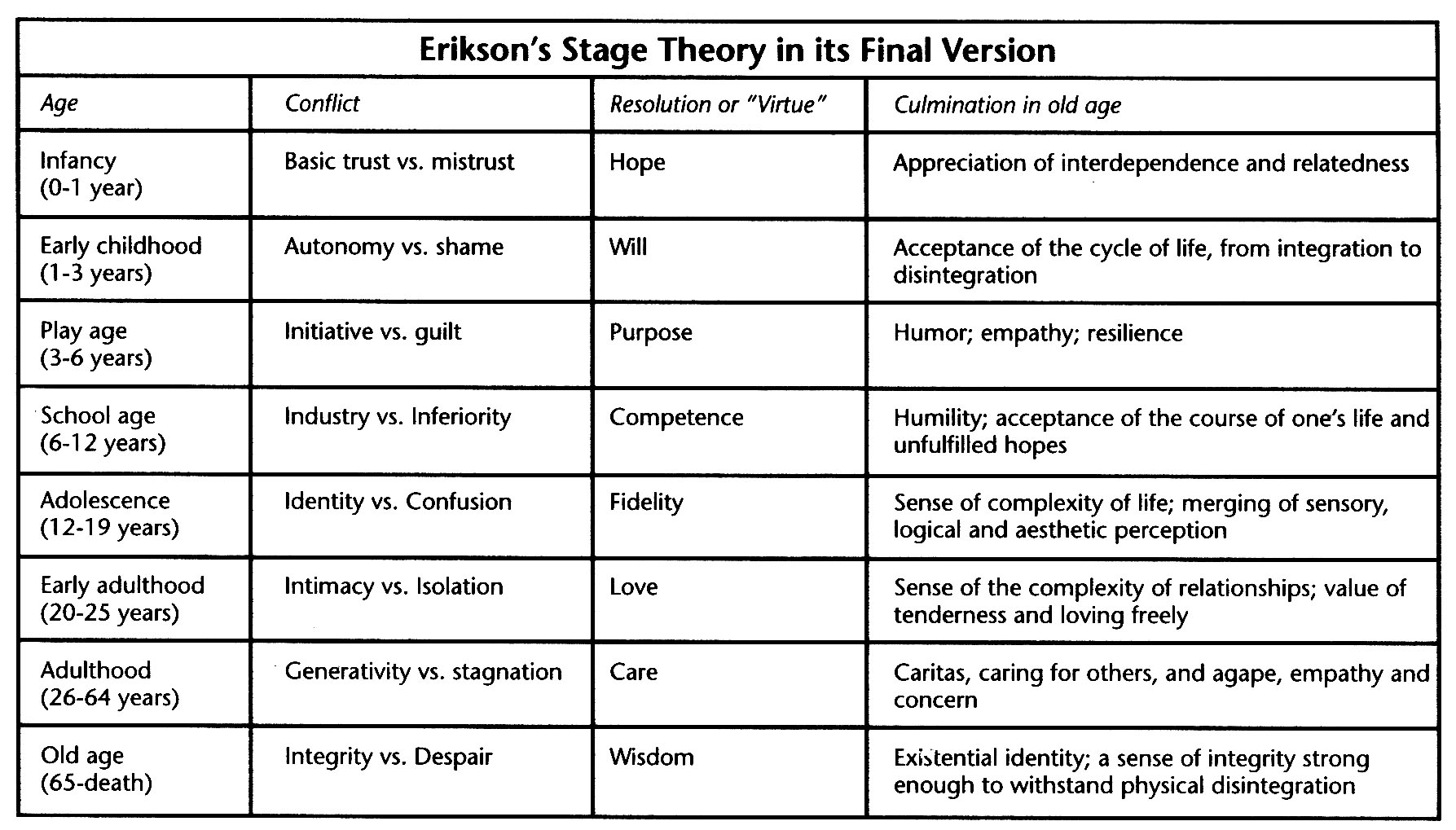Lesson 28: Positive Aging
Attention

Learning Outcomes
Upon completion of this lesson's material, students will be able to:
- MHRT Outcome: Knowledgeable about changing treatment needs for adult stages of transition.
Teaching
Read Chapter 12 in Vaillant
So...how do we sum up all of what we have learned about successful aging? I like what Vaillant does in the beginning of Chapter 12 when he refers to old age AA watchwords:
- Let go and let God
- First things first
- Keep it simple
- Carpe diem
- Use the telephone
We will all make the journey into old age (if death does not intervene)...will we be able to have the integrity to hold on to these "watchwords"?
As Mental Health workers you will also be in the role, regardless of the age of your clients, in helping them through the transitions of their lives. One of the great aspects of working in this field is to witness people in transition not only from hospitals to supported housing to independent living, but through the normal age-related transitions of life...sometime a "redo" of the stages that were so impacted by mental illness.
Consider that a person becoming an adult after a journey with mental illness may emerge at Erikson's first stage, Trust vs. Mistrust all over again...then as the person progresses they may encounter each additional step...
Assessment
Lesson 28 Discussion
Review each of the stages in Erikson's theory as they are presented in the graphic in the Lesson Plan. Explore the connection between the Conflict of a stage, the Virtue that can emerge from that Conflict and its fruition in our old age. Select a stage from the table to profile. Describe that connection between the Conflict and the ultimate manifestation in old age. While Erikson describes the presenting age of the stage, persons develop at different rates. For example, you could encounter an adult with mental illness who is developing trust, working to establish Hope. We might focus on developing trust and reaching out for support when needed.
Imagine that you encounter a client in your chosen stage of development. How can we provide to support to a person that draws on this knowledge?